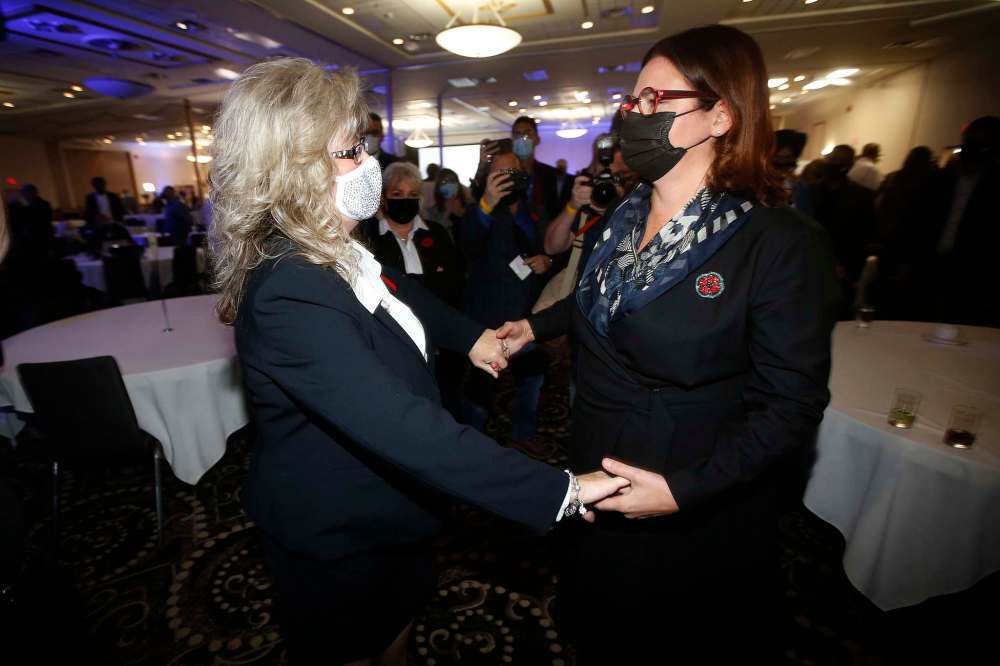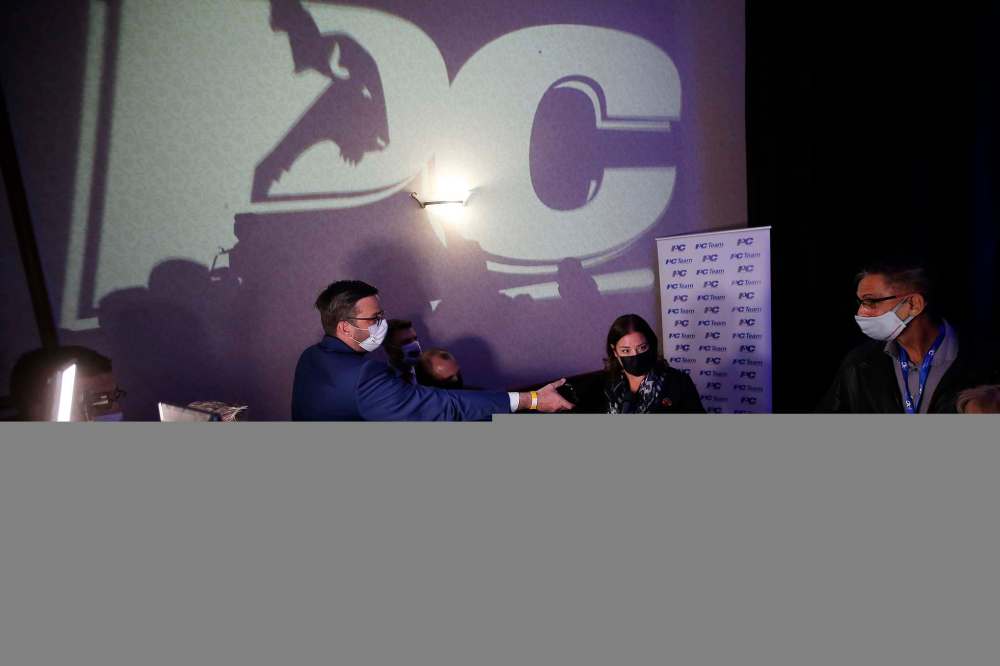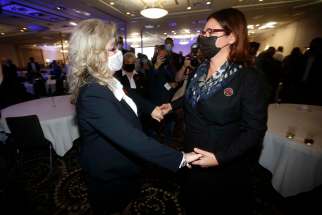Stir in instant members, bring PC leadership vote to boil
Read this article for free:
or
Already have an account? Log in here »
To continue reading, please subscribe:
Monthly Digital Subscription
$0 for the first 4 weeks*
- Enjoy unlimited reading on winnipegfreepress.com
- Read the E-Edition, our digital replica newspaper
- Access News Break, our award-winning app
- Play interactive puzzles
*No charge for 4 weeks then price increases to the regular rate of $19.00 plus GST every four weeks. Offer available to new and qualified returning subscribers only. Cancel any time.
Monthly Digital Subscription
$4.75/week*
- Enjoy unlimited reading on winnipegfreepress.com
- Read the E-Edition, our digital replica newspaper
- Access News Break, our award-winning app
- Play interactive puzzles
*Billed as $19 plus GST every four weeks. Cancel any time.
To continue reading, please subscribe:
Add Free Press access to your Brandon Sun subscription for only an additional
$1 for the first 4 weeks*
*Your next subscription payment will increase by $1.00 and you will be charged $16.99 plus GST for four weeks. After four weeks, your payment will increase to $23.99 plus GST every four weeks.
Read unlimited articles for free today:
or
Already have an account? Log in here »
Hey there, time traveller!
This article was published 04/11/2021 (1495 days ago), so information in it may no longer be current.
The benefit of allowing grassroots members of political parties to elect their leaders is it gives them a direct say in the future of their party.
The downside is it allows rogue candidates to sign up scores of instant members with no previous involvement in the party who can affect the outcome of a leadership race.
That’s one of the reasons Manitoba’s Progressive Conservative party in the 1990s resisted dropping its delegate system (where leaders are chosen from slates of delegates through constituency associations) in favour of a one-member, one-vote model, which it adopted in the early 2000s.

Many were concerned people with ulterior motives could buy memberships on the eve of a leadership contest and disrupt the process.
Those fears were realized at last weekend’s Tory leadership convention.
The majority of the approximately 25,000 members who were eligible to vote last week (just over 16,000 cast a ballot) were not members prior to the 2021 campaign. The party had an estimated 5,000 to 6,000 paid-up members before the race.
Some of the recent sign-ups were renewals but many — maybe most — had never been PC party members until a few weeks ago. Yet, their ballots (the deadline to buy a membership to vote was Oct. 1) carried the same weight as longtime party members. It’s a flawed system.
It allowed candidates, including former Conservative MP Shelly Glover — who is now contesting the results of the vote — to sign up people whose motivation for voting had little, if anything, to do with the future of the PC party.
Glover was courting Manitobans who were opposed to the province’s COVID-19 vaccine mandates and its pandemic public health orders. She fuelled anti-vax sentiment and exploited vaccine misinformation to sell memberships. Her strategy was effective: she almost won.

That’s not a healthy or desirable way for political parties to elect leaders. It may have the semblance of a grassroots, democratic approach, but it leaves parties open to hostile takeovers.
The alternative is not necessarily to return to a delegate system, which Manitoba’s New Democratic Party still uses.
That has its downsides, too: it’s more easily manipulated by the party establishment (in the NDP’s case, that includes organized labour, which is guaranteed a minimum number of delegates). It prevented the NDP from electing a dynamic, competent female leader in 2015, when delegates chose then-premier Greg Selinger over former health minister Theresa Oswald. The process was seen by many New Democrats as a failure.
There is one immediate step the Tories could take to improve the leadership selection process: limit voter eligibility to those who have been party members for a minimum period of time, such as six months or a year, prior to a leadership vote. It would prevent recent sign-ups from hijacking the process, while still allowing grassroots party members to elect a leader. Candidates could be nominated by existing party members.
Granted, it would prevent the party from capitalizing on the excitement of a leadership race by signing up new members in the weeks and months leading up to a vote. However, many of those new sign-ups tend to be fleeting members who are less likely to volunteer or contribute once the race is over. How many of the anti-vaxxers and COVID-19 deniers who bought memberships in the Tory leadership race are going to volunteer for the party (or even vote for them) in the next provincial election?
Even if some become permanent members, the downside of allowing a flood of instant members influence the outcome of a leadership race far outweighs the benefits.

There is no perfect system for electing party leaders. Even a one-member, one-vote system allows party brass to manipulate the process, including through procedural rules (as we saw in the Tory leadership race). But limiting voter eligibility based on a minimum time period would ensure those who are voting are bona fide party members.
tom.brodbeck@freepress.mb.ca

Tom has been covering Manitoba politics since the early 1990s and joined the Winnipeg Free Press news team in 2019.
Our newsroom depends on a growing audience of readers to power our journalism. If you are not a paid reader, please consider becoming a subscriber.
Our newsroom depends on its audience of readers to power our journalism. Thank you for your support.









